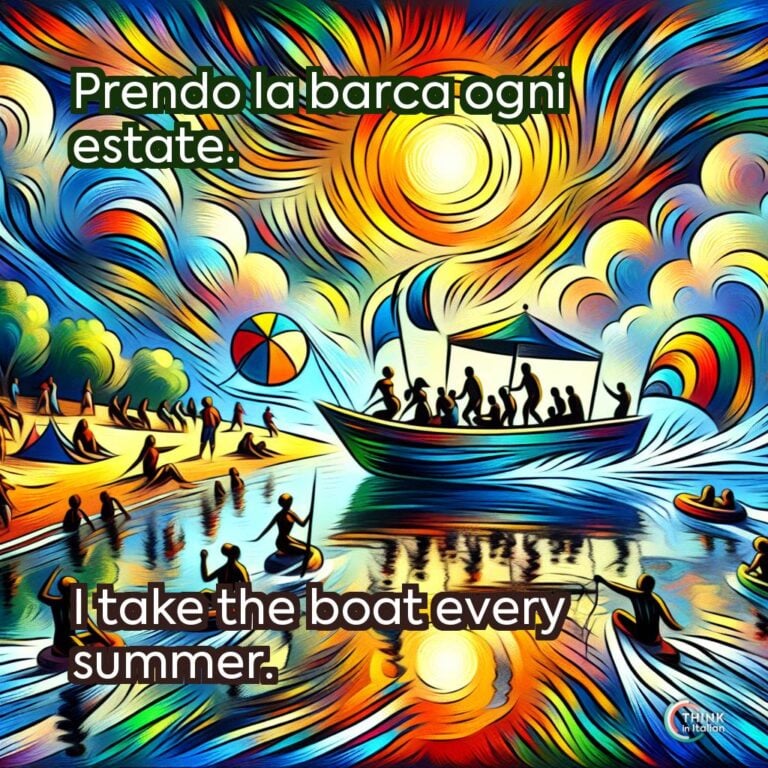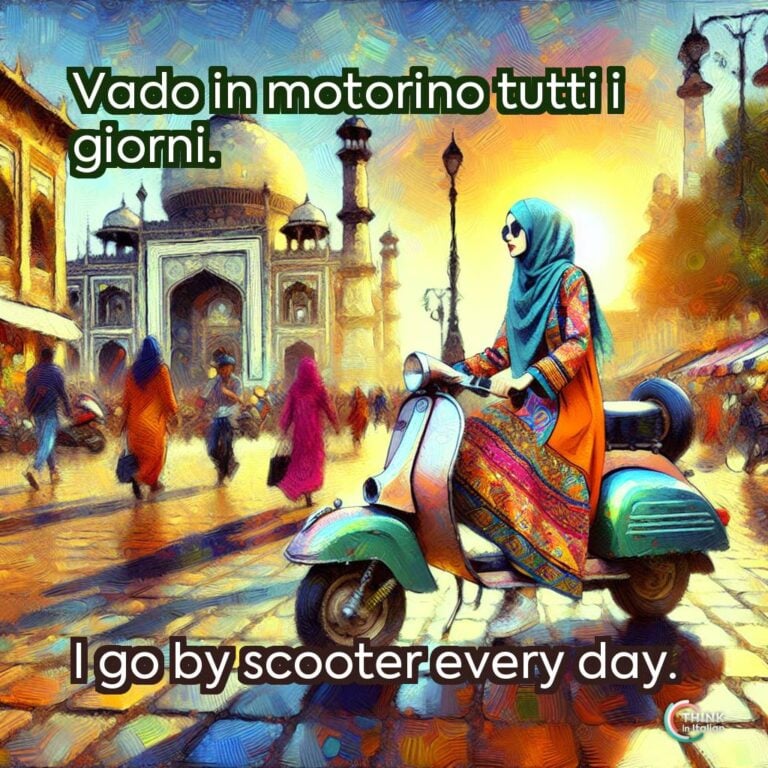Means of Transportation in Italian
First of all, let me show you the most common Italian mezzi di trasporto (means of transportation). Below, I will provide you with these nouns and their corresponding definite articles so you can see their grammatical gender.
- la macchina, l’automobile, l’auto (car): these are all synonyms and are all feminine nouns. Macchina is the most general term, while automobile is more formal.
- l’autobus (bus)
- il treno (train)
- la bicicletta, la bici (bike): bici is the informal and shortened version of bicicletta.
- l’aereo (airplane)
- la motocicletta, la moto, il motorino (motorbike, scooter): motocicletta is the formal term for a motorbike and moto is its shortened form. Motorino refers to a scooter or moped.
- la barca (boat)
- il taxi (taxi): directly adopted from English.
- la metropolitana, la metro (subway, underground): metro is a common shortened form of metropolitana.
- il tram (tram): directly adopted from English.
- il pullman (coach, long-distance bus)
- l’elicottero (helicopter)
- il traghetto (ferry)
How to Use Means of Transportation in Italian
Preposition “In” for General Means of Transport
When talking about traveling or moving using most forms of transportation, Italian uses the preposition in without an article. This is similar to the English use of “by”.
Vado a lavoro in macchina.
I go to work by car.
Viaggiamo sempre in treno.
We always travel by train.
In Olanda si muovono tutti in bici.
In Holland, everyone gets around by bike.
Be careful! If you want to say “on foot”, in Italian we say a piedi:
Vado a scuola a piedi.
I go to school on foot.
Watch out the preposition! A piedi means “on foot”, while in piedi means “standing”!
Preposition “Con” + Definite Article
You can also express means of transportation using con (with) followed by the definite article and the name of the vehicle. This construction is used to specify a vehicle rather than another:
Sono andato con la macchina di mio padre.
I went with my father’s car.
Viaggiamo con l’aereo delle 9.
We are traveling with the 9 o’clock plane.
Verbs and Means of Transportation
Of course, when you are discussing a means of transport you use, you use a reduced cluster of verbs that are specifically liked to movements and traveling.
It is important that you know what these verbs are and how they are used, as they might vary from English. Let me start with the most common one: andare (to go).
Andare is the most common Italian movement verb. However, unlike English that uses the preposition “to” only, Italian can use either the preposition in or a. The choice of the preposition depends on the place where the subject is going.
A simple tip I always give my students is the following:
- in is used for circumscribed places, small ones that have clear boundaries, like gates, doors, borders… like palestra (gym), piscina (pool) and names of Countries.
- a is used for wider places, bigger in size, and without any border, like mare (sea), parco (park), and names of cities.
When you use andare with means of transport, you convey the meaning of using that means of transport to move, as you can see from the examples below:
Io vado in macchina, ci vediamo lì.
I’ll go by car, see you there.
Mi piace andare in bici.
I like riding a bike.
Sono andata in taxi, non mi andava di camminare.
I went by taxi, I didn’t feel like walking.
Check the past tense of Italian movement verbs to learn more about grammatical rules and auxiliary verbs.




